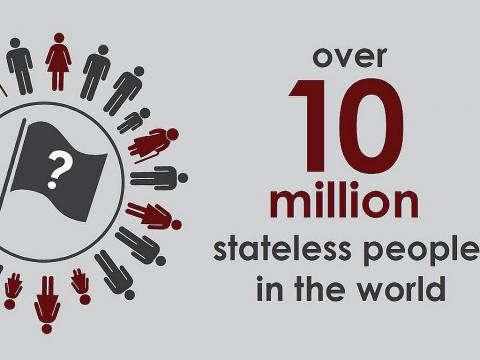By Francis H. Murray
The Internal Affairs Ministry, in collaboration with Conscience International, has ended a two-day training for government staff on statelessness.
Statelessness is a situation wherein a person lacks the appropriate documentation that legitimizes their stay in a country.
‘‘Statelessness is the position an individual finds him/herself in which he/she is unable to produce proper documentations related to the citizenship of that country he/she has been domiciled nor for any other country. It may surprise readers to know that people are in this position and yet do not know until a situation arises that necessitates the tendering of documentation that speaks for his/her citizenship,” a statement from the ministry reads in part.
The two days training brought together over twenty (20) participants from the ministries of Internal Affairs, Foreign Affairs and International Cooperation, Social Welfare and a host of other relevant institutions.
The program was designed to achieving the five commitments made by Sierra Leone in the 2019 Excom as part of its National Action Plans.
Andrew Kamara, representative of the Ministry of Internal Affairs, noted that there was a global fight against the surge of Statelessness especially in Sierra Leone and the sub region of West Africa.
‘‘There is a global fight to end statelessness particularly in Sierra Leone and West Africa, a fight the country is fully committed to,” he stated,
He added that Sierra Leone was facing many social challenges to end statelessness by 2024.
Kamara said a ten-year campaign (2014-2024) had been launched to eradicate statelessness. Kambia in the Northern region and Yenga in the Eastern region of the country are possible areas that serve as home for stateless people.
According to the Internal Affairs Ministry, there are up to 750, 000 stateless people in West Africa and 10 million in the world. There is no indication on how many could have been affected in Sierra Leone.
“Low security presence at our borders, legal framework, migration and lack of proper identity documentation, porous borders, discrimination and migration, nomadic people, children born to migrants are some of the factors responsible for statelessness,” Kamara said.
“The government has made considerable strides to eradicate statelessness by appointing a Focal Person, acceding to conventions and treaties, undertaken civil registration reforms, visited border areas to identify groups and persons threatened by statelessness and pledged to continue working with various stakeholders to end the menace, underscoring that children and migrants are the most vulnerable to become stateless people,’’ the government’s statement reads.
Key among the concerns raised by the participants is that Sierra Leone had a loophole in terms of policy on migration and the lack of statistics on stateless people in the country.
Participants have been trained to know the subject surrounding statelessness and render their expertise when the need arises.
Copyright © 2020 Politico Online









